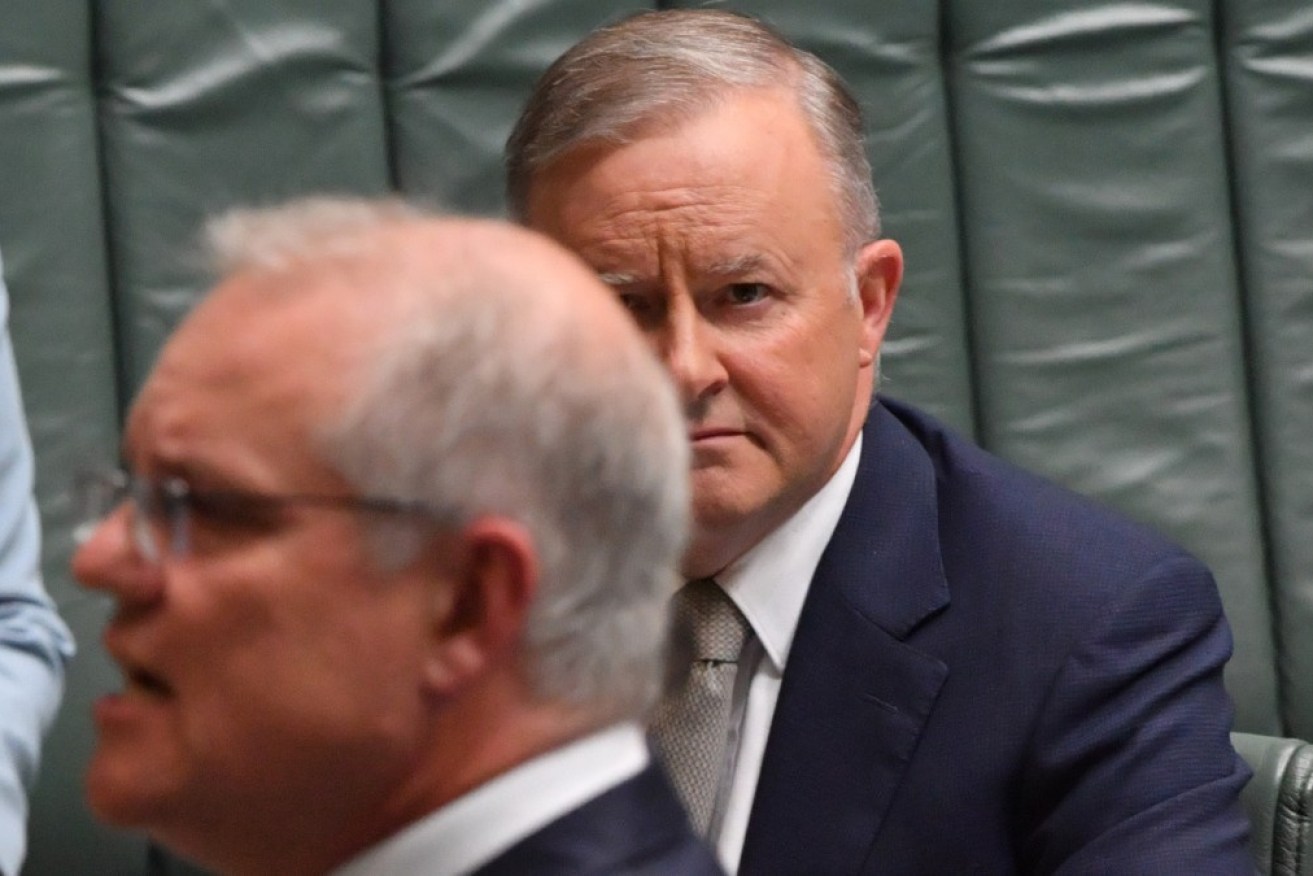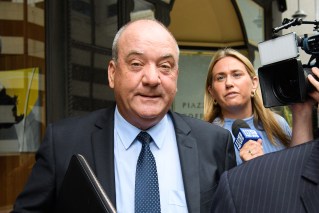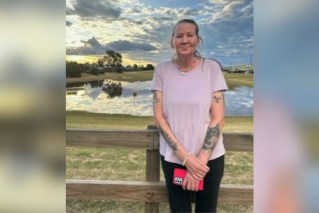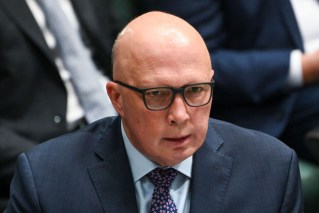Defiant Albanese compares himself to Biden as Labor prepares for election war


Anthony Albanese's cabinet reshuffle shows he's ready to take on Morrison's government at the election, whenever that may be. Photo: AAP
Anthony Albanese is digging in, defiantly batting away leadership questions and putting his team on a war footing as he signals Labor won’t give up the next election without a fight.
The Opposition Leader hit out at media for writing “nonsense” about his policies, and likened himself to new American President Joe Biden, as he unveiled a bigger-than-predicted shadow ministry reshuffle before the election expected this year.
Labor's new team will be focused on jobs. A team with the vision to ensure we build back strong, and match the aspirations of the Australian people. We'll tackle issues the Liberals have abandoned. We'll fight for the people they've left behind. Labor is ready to deliver for you. pic.twitter.com/wsZ9WiUDZj
— Anthony Albanese (@AlboMP) January 28, 2021
“There were people in this room who predicted that Donald Trump would win re-election,” Mr Albanese said in a Canberra press conference.
“But a bloke who was a former deputy leader and an experienced politician, who had held a wide range of portfolios and who was someone who was underestimated by some, he is now President of the United States.”
The parallel drawn by Mr Albanese – a veteran MP and former deputy Prime Minister – was lost on none in the room.
A complex set of pieces fell into place on Thursday.
Planned for several weeks ago, but delayed due to Mr Albanese’s car crash, the shadow ministry shake up is an attempt to paper over old vulnerabilities, and open new points of attack on the government.
As several Labor sources said, it points to Labor’s strategy for the coming election.
But agitators against Mr Albanese are still not persuaded, saying the reshuffle will do little to quieten his party critics.
‘Strong position on climate’ despite Butler shift
The headline change is the direct swap of Mark Butler and Chris Bowen taking each other’s former roles of health and climate change, respectively.
Labor hopes Mr Bowen, from the NSW Right faction, may be a more palatable salesman for their climate agenda, inside and outside the party.
One source suggested Mr Bowen was installed to soothe Right faction MPs worried about the electoral impact of climate action.

Anthony Albanese has given Chris Bowen the key climate portfolio. Photo: AAP
Mr Bowen, former federal treasurer, is expected to be bringing a more economic and jobs-focused eye to the role.
Mr Albanese claimed the switch wasn’t a failing on Mr Butler’s part.
But other senior Labor sources admitted the party needed to revamp how it spoke to voters about climate and resources.
Indeed, Mr Albanese stressed several times that Labor’s climate policy wouldn’t change – only its public face.
“Chris Bowen has a very strong position on climate change. I have a strong position on climate change. There is no way a Labor government I lead won’t take action on climate change,” Mr Albanese said.
In a statement, Mr Bowen said his “friend” Mr Butler would give “continued counsel in my new role”.
It's been an honour over the last 8 yrs working alongside the many thousands of Australians who are committed to preserving a safe climate for our children and embracing the job opportunities of clean energy. The fight goes on! pic.twitter.com/6yccBLSR5O
— Mark Butler MP (@Mark_Butler_MP) January 28, 2021
Mr Butler served as parliamentary secretary for health, and minister for mental health ageing, in the Rudd-Gillard governments, so is expected to slot into the health and ageing portfolio without trouble.
National reconstruction
The other big move is deputy Labor leader Richard Marles, from the less prominent spotlight of defence into a headline new role of ‘shadow minister for reconstruction, employment, skills and small business’.
It’s a sprawling new portfolio, reaching into other areas like industry, innovation, education and treasury.

Tanya Plibersek lost one portfolio then gained another. Photo: AAP
It puts Mr Marles, one of Labor’s stronger public communicators, into a more front-facing position.
His role amalgamates several separate portfolios; the employment ministry of Brendan O’Connor, the skills responsibility of Tanya Plibersek.
Mr O’Connor takes Mr Marles’ former slot of defence.
Ms Plibersek, who some in Labor had felt was already under-utilised in the education and skills role, had the latter responsibility removed but picked up a new title as shadow minister for women, which Mr Albanese said she would do an “outstanding job on”.
Election strategy
Mr Albanese’s reshuffle had the twin goals of quietening internal critics, and setting an election plan.
The first part was the strategy behind shifting Mr Butler, a Left faction heavyweight who had pushed the party into adopting a 45 per cent emissions reduction goal at the 2019 poll.
He, and close ally Mr Albanese, had come under fire from maverick pro-coal MP Joel Fitzgibbon and others in the party; Labor members in rural or resources-heavy seats claimed the party’s environmental stance was costing votes.
Switching Mr Butler for the more moderate Mr Bowen will be seen as a sign to those inside and outside the party that Labor may entertain a less radical climate target.
Mr Albanese will hope the shift will also quiet some detractors who are running a clandestine destabilisation operation.
None have publicly shown their hands, but pressure is building on Mr Albanese to knock some paint off the government.
Other minor parts of the reshuffle show perhaps where the leader hopes to do that, and where Labor hope to win seats in the coming election.
A new role for Kristina Keneally, arguably the Opposition’s most effective social media weapon, will focus on government accountability.
Expect more massive tweet threads, videos of her interrogating government officials, and fiery speeches, as Labor ramps up their slogan that the government is “all photo op, no follow up”.
Excited to add new role of Shadow Minister for Qld Resources in @AlboMP Shadow Ministry. Keen to champion one of Qld’s most important industries and the hardworking people who drive it. pic.twitter.com/zbKjMSgCYp
— Senator Murray Watt (@MurrayWatt) January 28, 2021
Mr Albanese has also invented a number of new special regional roles, including shadow assistant ministers for Tasmania, Northern Australia and Western Australia, and a new shadow minister for Queensland resources.
Those are states where Labor needs to pick up seats in regional areas, with the roles possibly created to address criticisms Mr Albanese didn’t have more focus on resources and mining.
The Queensland resources role, for Senator Murray Watt, is seen by some as specifically aiming to win back votes in the crucial battleground state, which Labor lost on the back of its last climate policy and flip-flop position on the Adani mine.
In a Wednesday night interview on the ABC’s 7.30, the Labor leader said he expected to be “very strongly positioned” for an election.
On Thursday, his press conference ended with the Biden comparison, and a mic drop.
“I will be the leader of this country after the next election,” he said, leaving the lectern and walking off.








